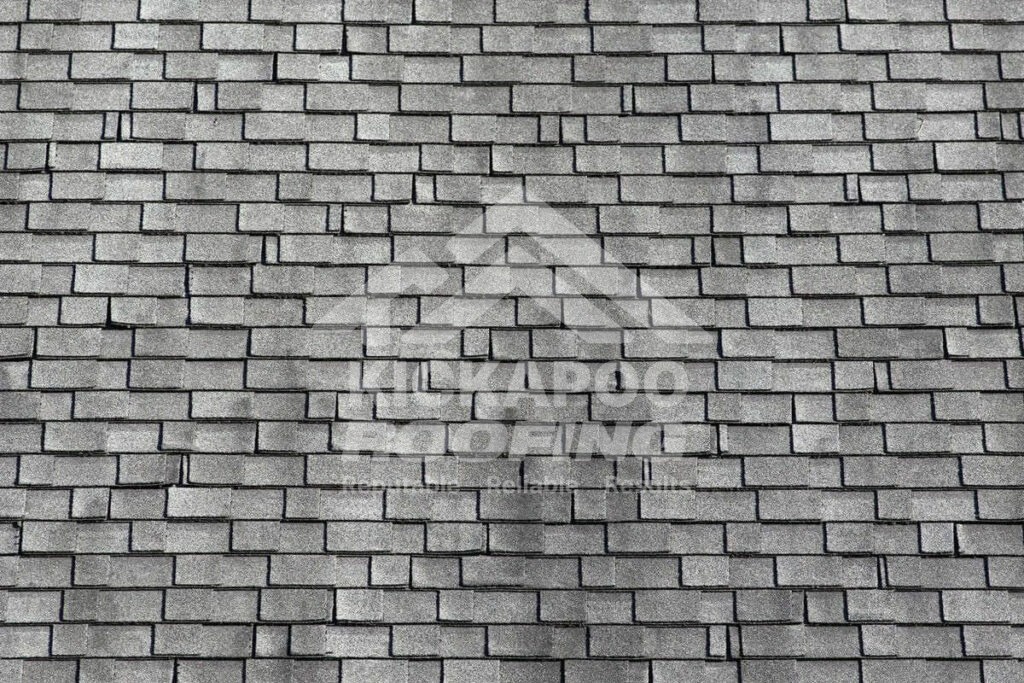Asphalt shingles are a common roofing material used on residential buildings to provide protection and durability to the roofing system. If you are a homeowner living in Wisconsin, then you should know that maintaining the cleanliness and health of shingles is crucial to ensuring the longevity and overall performance of a roof. Keeping the shingles free from debris, mold, and algae growth can help prevent any potential damage that may impact the roof’s appearance or structure.
In today’s blog, we will answer a crucial question: will bleach damage asphalt shingles, or not? We will cover the steps on how to use bleach to clean your roof, and also share some maintenance tips. So let’s get started!
What Is Bleach?
Bleach is a chemical substance commonly used as a cleaning and disinfecting agent. It is a solution of sodium hypochlorite, which acts as a powerful oxidizing agent, breaking down and removing stains, dirt, and bacteria. The use of bleach for cleaning has become widespread due to its strong and effective cleaning properties, making it a popular choice for household and industrial applications.
However, it is important to understand the effects of bleach and how it may impact different surfaces, including asphalt shingles. Let’s find out whether it is a good idea to use bleach for roof cleaning.
Can You Clean A Roof With Bleach?
We now arrive at the most important question, should you use bleach to clean your roof? Well, the answer is yes, bleach can be used to clean asphalt shingles, but only if it is used carefully.
If you use powerful bleach without any precautions, then it may cause damage to the shingles over time. The chemical properties of bleach can strip the protective granules from the shingles, which leads to discoloration, fading, and even structural damage.

What Are The Steps To Clean An Asphalt Shingle Roof?
If you are interested in cleaning the roof yourself, then it is important to do the job correctly to get the best results. Take the following steps below to clean your roofing system:
Safety First
Before moving ahead with the process, take the necessary precautions to protect yourself. The roof is the highest point of your property, and accessing your roof can be risky. Here is some of the protective equipment you should wear:
- Safety harness: A safety harness is a good idea to prevent falls while working on a roof.
- Gloves: Protect your hands from the bleach solution and sharp edges on a roof by wearing thick rubber gloves.
- Protective eyewear: To protect your eyes from the sun and any backsplash from the bleach solution, wear safety goggles or another form of protective eyewear.
By using protective gear, you can help ensure a safe and successful cleaning experience for yourself while cleaning your asphalt shingles. Asking for help from a friend or family member is also advised.
Protect The Surrounding Area Below
In order to prevent damage to plants, landscaping, and other surfaces, it’s important to protect the surrounding area of your lawn when cleaning asphalt shingles with bleach. You can do this by covering any surrounding area with plastic to prevent exposure to the bleach solution. This is particularly important for delicate plants or landscaping, as bleach solution can be harmful. However, note that most solutions available on the market are now more plant-friendly, and will not cause as much harm.
Make A Bleach Solution
Now that the preparation stage is done, it is time to move ahead with preparing the bleach solution for cleaning the asphalt shingles, you will need the following items:
- Bleach
- Water
- A large spray bottle
Mixing one part bleach with one to two parts water in a spray bottle can create the cleaning solution needed for your shingles. Experts recommend that you use the water and bleach in equal concentrations, meaning that the combination should be in a ratio of 50:50. It’s also important to shake the bottle gently to ensure the solution is well-mixed.
Apply The Solution
Applying the bleach solution to asphalt shingles is a straightforward process. After preparing the solution, climb onto the roof wearing the recommended protective gear to ensure your safety. Next, hold the spray bottle about 6-8 inches from the shingles and spray the solution evenly on all stained or discolored areas, making sure that they are thoroughly covered. It’s important to avoid over-spraying the solution, as this can cause damage to the shingles or surrounding areas.
Rinse The Roof Gently
It is important to thoroughly rinse the shingles after cleaning them with bleach to remove all the solution. This will help prevent damage to the shingles or the surrounding area. To rinse the shingles, use a garden hose and make sure that all of the solution is removed. Avoid the use of a pressure washer as they can damage the shingles and even void your shingle’s warranty.
Are There Any Other Alternatives?
As we have seen, bleach is not dangerous for your roofing material, provided you use it with precaution. Regardless, before using bleach, check with the shingle manufacturer to determine if bleach is recommended or approved for use on their product.
If you are set on not using bleach there are some other options available that provide similar results. Consider using alternative cleaning methods, such as a mixture of water and vinegar, or specialized roof cleaning products designed specifically for asphalt shingles, available in store, or online.
Trouble Cleaning Your Asphalt Shingles?
We hope that by reading this blog, you now the answer to the question will bleach damage asphalt shingles? To keep your asphalt shingles clean, it is important to be a dedicated and proactive homeowner. Regularly inspect your roofing system to make sure that the shingles do not get dirty, and also ensure that there’s no damage that could cause issues later on.
If you don’t want to take the risk of cleaning asphalt shingles yourself, and instead want a professional approach, then contact the team of Kickapoo Roofing. Our team has years of experience installing and maintaining asphalt shingle roofs, and we can help you keep yours maintained too!
Contact us today at (608) 352-8688 to learn more about us, and the services we provide.
 (608) 352-8688
(608) 352-8688  schedule consultation
schedule consultation




